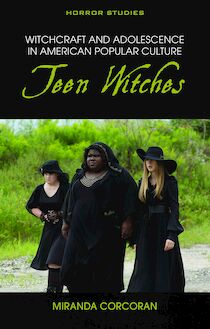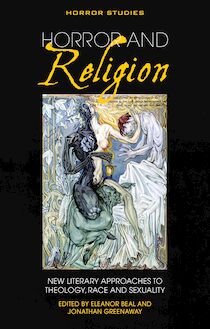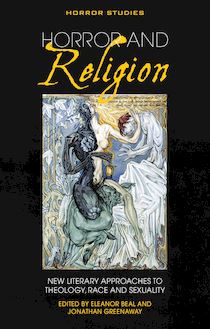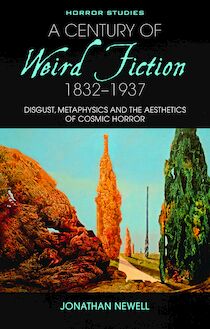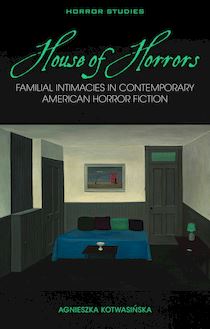-
 Univers
Univers
-
 Ebooks
Ebooks
-
 Livres audio
Livres audio
-
 Presse
Presse
-
 Podcasts
Podcasts
-
 BD
BD
-
 Documents
Documents
-
- Cours
- Révisions
- Ressources pédagogiques
- Sciences de l’éducation
- Manuels scolaires
- Langues
- Travaux de classe
- Annales de BEP
- Etudes supérieures
- Maternelle et primaire
- Fiches de lecture
- Orientation scolaire
- Méthodologie
- Corrigés de devoir
- Annales d’examens et concours
- Annales du bac
- Annales du brevet
- Rapports de stage
La lecture à portée de main
Vous pourrez modifier la taille du texte de cet ouvrage
Découvre YouScribe en t'inscrivant gratuitement
Je m'inscrisDécouvre YouScribe en t'inscrivant gratuitement
Je m'inscrisEn savoir plus
Vous pourrez modifier la taille du texte de cet ouvrage
En savoir plus

Description
From The Long Walk to The Outsider, Stephen King’s output reflects the major political concerns of the previous fifty years. This book is the first sustained study of the complex ways in which King’s texts speak to their unique political moments. By exploring this aspect of the author’s popular works, readers might better understand the numerous crises that Americans currently face – the book surveys King’s corpus to address a wide range of issues, including the spread of neoliberalism, the Bush-Cheney doctrine, and the chaos of the populist present. Although the fiction outwardly declares itself to be anti-political (thus reflecting a widespread shift away from democracy in the aftermath of the 1960s), political energies persist just beneath the surface. Given the possibility of a political resurgence that haunts so many of his page-turners, Stephen King produces horror and hope in equal measure.
1. Prelude: The (Im)possible Politics of Stephen King’s Fiction
2. The Bachman Books and America’s Death Drive
3. King’s Cars and the Grinding Gears of Post-Fordism
4. Firestarter; Or, the Smelting of a Neoliberal Subject
5. IT, Individualism, and the Idea of Community
6. Interlude: The Langoliers and the Political Event
7. Human Capital in Rose Madder
8. Under the Dome and the Deteriorating Demos
9. The Outsider and the Shifting Shapes of Trumpism
10. Postlude: Revolutions of The Stand
Sujets
Informations
| Publié par | University of Wales Press |
| Date de parution | 01 janvier 2021 |
| Nombre de lectures | 0 |
| EAN13 | 9781786836489 |
| Langue | English |
Informations légales : prix de location à la page 0,2850€. Cette information est donnée uniquement à titre indicatif conformément à la législation en vigueur.
Extrait
Stephen King
AND AMERICAN POLITICS
HORROR STUDIES
Series Editor
Xavier Aldana Reyes, Manchester Metropolitan University
Editorial Board
Stacey Abbott, Roehampton University
Linnie Blake, Manchester Metropolitan University
Harry M. Benshoff, University of North Texas
Fred Botting, Kingston University
Steven Bruhm, Western University
Steffen Hantke, Sogang University
Joan Hawkins, Indiana University
Agnieszka Soltysik Monnet, University of Lausanne
Bernice M. Murphy, Trinity College Dublin
Johnny Walker, Northumbria University
Preface
Horror Studies is the first book series exclusively dedicated to the study of the genre in its various manifestations – from fiction to cinema and television, magazines to comics, and extending to other forms of narrative texts such as video games and music. Horror Studies aims to raise the profile of Horror and to further its academic institutionalisation by providing a publishing home for cutting-edge research. As an exciting new venture within the established Cultural Studies and Literary Criticism programme, Horror Studies will expand the field in innovative and student-friendly ways.
Stephen King
AND AMERICAN POLITICS
MICHAEL J. BLOUIN
© Michael J. Blouin, 2021
All rights reserved. No part of this book may be reproduced in any material form (including photocopying or storing it in any medium by electronic means and whether or not transiently or incidentally to some other use of this publication) without the written permission of the copyright owner except in accordance with the provisions of the Copyright, Designs and Patents Act. Applications for the copyright owner’s written permission to reproduce any part of this publication should be addressed to the University of Wales Press, University Registry, King Edward VII Avenue, Cathays Park, Cardiff, CF10 3NS.
www.uwp.co.uk
British Library Cataloguing-in-Publication Data
A catalogue record for this book is available from the British Library.
ISBN 978-1-78683-646-5
eISBN 978-1-78683-648-9
The right of Michael J. Blouin to be identified as author of this work has been asserted in accordance with sections 77 and 79 of the Copyright, Designs and Patents Act 1988.
The publisher has no responsibility for the persistence or accuracy of URLs for any external or third-party internet websites referred to in this book, and does not guarantee that any content on such websites is, or will remain, accurate or appropriate.
Cover image © mauritius images GmbH / Alamy Stock Photo
Dedicated to Willow
Contents
Acknowledgements
1. Prelude: The (Im)possible Politics of Stephen King’s Fiction
2. The Bachman Books and America’s Death Drive
3. King’s Cars and the Grinding Gears of Post-Fordism
4. Firestarter ; or, the Smelting of a Neo-liberal Subject
5. IT , Individualism, and the Idea of Community
6. Interlude: The Langoliers and the Political Event
7. Human Capital in Rose Madder
8. Under the Dome and the Deteriorating Demos
9. The Outsider and the Shifting Shapes of Trumpism
10. Postlude: Revolutions of The Stand
Notes
Bibliography
Acknowledgements
W HEN I DECIDED to return to Stephen King’s fiction, it felt like coming home. I spent a good deal of my time in college locating countless treasures in the dark and dismal corners of his works – an endeavour that eventually nudged me into a career in academia. Most fortunately, I met my future partner Kate in a course dedicated to this subject. Our shared appreciation of King’s writing helped to spark our love. I decided to chart my own path in the years that followed by gaining greater insight into critical theory as well as popular culture (specifically, in conversation with neo-liberalism). But the road has led me back to King. One day, I found myself quite unexpectedly sitting down to think through his fiction with fresh eyes. What ensued was the profoundly joyful experience of writing this book.
Kate gave me the time and space to write this book, and she inspired me on a daily basis to be a better person. Her generous spirit reminds me that things can, in fact, always be otherwise. My daughters Emerson and Willow distracted me, in the best possible way, and filled my heart with light when the nature of the research weighed me down. My mother Melissa provided me with confidence when doubts crept to the surface. I am extremely fortunate to have these people in my life.
I also owe a great deal to my most formative professors, Tony Magistrale and Gary Hoppenstand, both highly respected experts on King’s fiction. Once upon a time, they taught me to take King seriously and to reflect upon unlooked-for aspects of his corpus. As a collaborator on a recent project, Tony continued to model how to be an innovative reader of King, and for his years of mentorship, I remain eternally grateful.
A huge thanks to Collin Hawley, my graduate research assistant, who spent hours tracking down obscure sources. He did a phenomenal job. Colleagues and friends that supported me unconditionally include Lee Blackburn, Heather Hoover, Tim Dillon, Amy Edmonds and Joseph Baker. I am also grateful to the Buckham Fund for providing me with the means to come and speak at the University of Vermont on the topic of all things Stephen King.
Finally, I must extend my gratitude to the thoughtful readers that have offered me vital criticism as well as healthy doses of encouragement: the tireless reviewers at the University of Wales Press, Todd McGowan, Scott Michaelsen, John Sears, Simon Brown, Patrick McAleer and Steven Bruhm. Without their keen insights, this book would not exist. Of course, the errors and missteps that remain are solely my own.
1
Prelude
The (Im)possible Politics of Stephen King’s Fiction
F ROM CARRIE (1974) to The Institute (2019), Stephen King’s fiction reflects dramatic political upheavals of the past fifty years, including disillusionment in foreign wars, disenchantment with the welfare state and a drift towards theocracy. For nearly every major concern of the era, readers will find a corresponding work. 1 To address this correspondence, the book adopts several aims. First, it takes stock of the dominant political themes in King’s universe to understand better the relationship between his writings and the contexts in which they emerge. Secondly, it expounds upon moments of cohesion as well as conjuncture (at times, his texts involve a consistent set of commitments; at other times, his texts suggest tension or uncertainty). Finally, it politicises King scholarship because many of his critics too readily accept the claim, trumpeted by King himself, that his fiction remains ‘anti-political’. 2 In contrast to the analyses of cultural politics in King’s corpus undertaken by a wide range of critics, I concentrate in the pages that follow upon how his texts engage with politics proper, which is to say, the never-ending (re)formation of groups with shared interests. This book examines how King’s narratives reflect as well as challenge the role of politics as a passionate struggle that has been steadily displaced over the last fifty years by America’s all-consuming focus upon economics. If we minimise this aspect of King’s fiction, we undervalue an incredibly rich vein of interpretive possibility.
Rather than attend to the cardinal function of politics as a persistent wrangling, scholars of King’s work sometimes put forward a thin conceptualisation by exposing evidence of social decay, or commenting upon a broad middle-class habitus in a manner that treats politics as a secondary – not constitutional – attribute of being human. This approach perhaps seems reasonable enough when, for instance, we consider the intentionally massive scale of King’s 1977 novel, The Shining : ‘[The Overlook] forms an index of the whole post-World War II American character’ (King, Shining 281). But we might worry, alongside Douglas Cowan, that scholarship on this subject tends to be satisfied with relatively ‘parochial understandings’ of complex terms. The general use of the term ‘politics’ in certain analyses serves as ‘a superficial abstraction, [an] empty placeholder’ that means too much and too little. Consequently, it becomes commonplace to map ‘easily recognizable’ ideas of the ‘sociopolitical’ onto King’s narratives in a manner that downplays the complicated part that politics actually plays (Cowan 13–15). Although King and many of his critics frequently present the politics of his fiction as external to everyday life (an ill-fitting adornment, or a bad habit foisted upon a bedrock called society), I wish to survey how politics comprises King’s multiverse at its most primary level.
Of course, to say that critics have not given the political aspects of King’s fiction their due is not to argue that critics have produced no valuable commentary on the subject. Tony Magistrale, for example, opens his landmark study of King’s fiction with the observation that his stories are ‘politically focused’ ( Landscape 25). Craig Ian Mann posits, ‘King has always been a political writer’ (199). And Douglas W. Texter adds, ‘King’s work in general is much more political than critics … want to admit’ (45). Built upon a foundation laid by these insightful readers, the following book charts how political concepts weave their way into the pages of King’s fiction.
We might sympathise with critics that produce more anaemic accounts of the politics in King’s fiction because of the prominent method for reading that is bundled together with his prose. Specifically, King endorses a method of reading that adamantly refuses to ‘get political’. Although his non-fiction treatise Danse Macabre (1981) admits the influence of the Cold War and the Kennedy assassination on his creative process, it relegates these connections to his unconscious, as he doubts that horror writers ever intend to ‘wear a political hat’. Danse Macabre opens with an outright denial that his texts harbour any ‘disguised’ p
-
 Univers
Univers
-
 Ebooks
Ebooks
-
 Livres audio
Livres audio
-
 Presse
Presse
-
 Podcasts
Podcasts
-
 BD
BD
-
 Documents
Documents
-
Jeunesse
-
Littérature
-
Ressources professionnelles
-
Santé et bien-être
-
Savoirs
-
Education
-
Loisirs et hobbies
-
Art, musique et cinéma
-
Actualité et débat de société
-
Jeunesse
-
Littérature
-
Ressources professionnelles
-
Santé et bien-être
-
Savoirs
-
Education
-
Loisirs et hobbies
-
Art, musique et cinéma
-
Actualité et débat de société
-
Actualités
-
Lifestyle
-
Presse jeunesse
-
Presse professionnelle
-
Pratique
-
Presse sportive
-
Presse internationale
-
Culture & Médias
-
Action et Aventures
-
Science-fiction et Fantasy
-
Société
-
Jeunesse
-
Littérature
-
Ressources professionnelles
-
Santé et bien-être
-
Savoirs
-
Education
-
Loisirs et hobbies
-
Art, musique et cinéma
-
Actualité et débat de société
- Cours
- Révisions
- Ressources pédagogiques
- Sciences de l’éducation
- Manuels scolaires
- Langues
- Travaux de classe
- Annales de BEP
- Etudes supérieures
- Maternelle et primaire
- Fiches de lecture
- Orientation scolaire
- Méthodologie
- Corrigés de devoir
- Annales d’examens et concours
- Annales du bac
- Annales du brevet
- Rapports de stage



